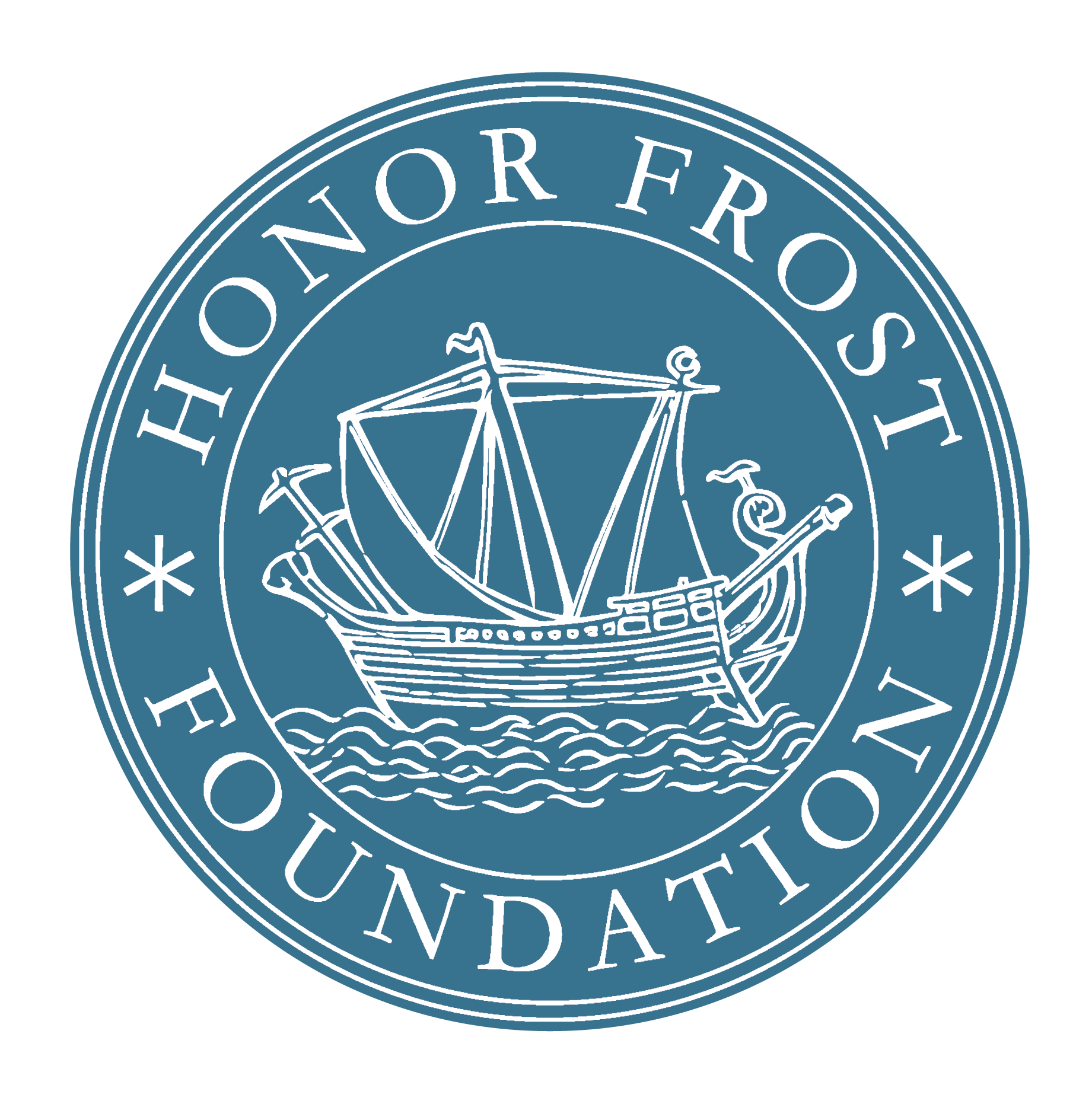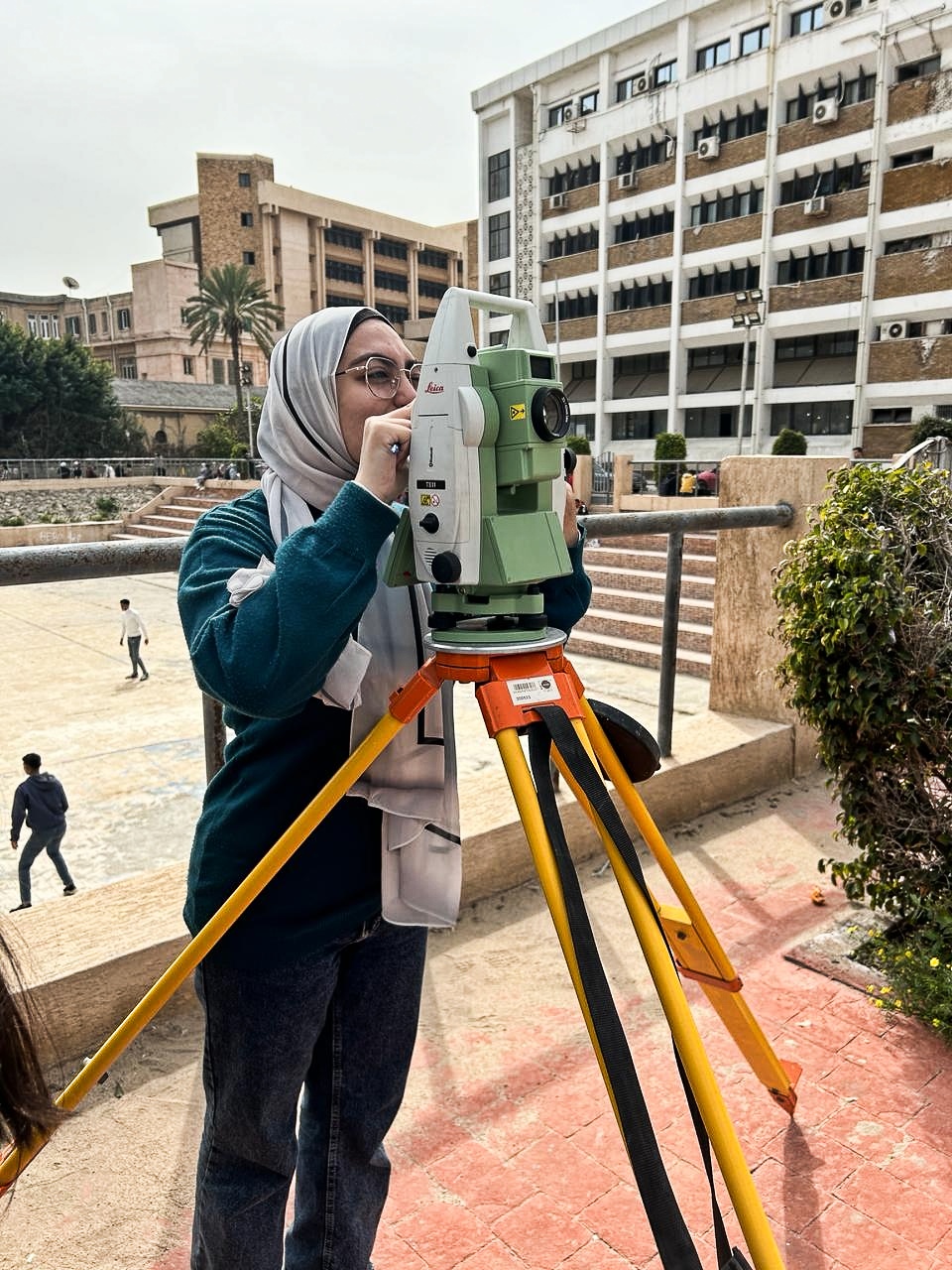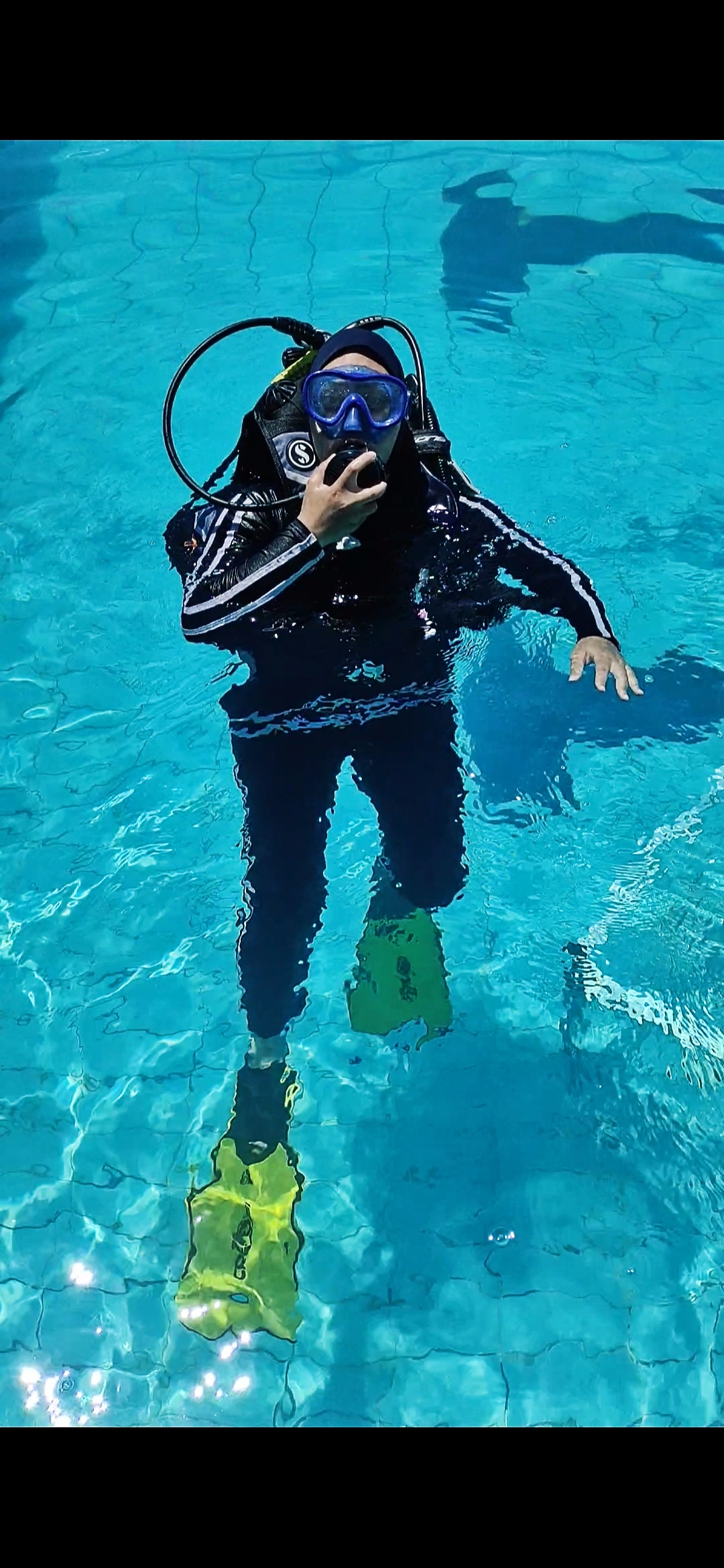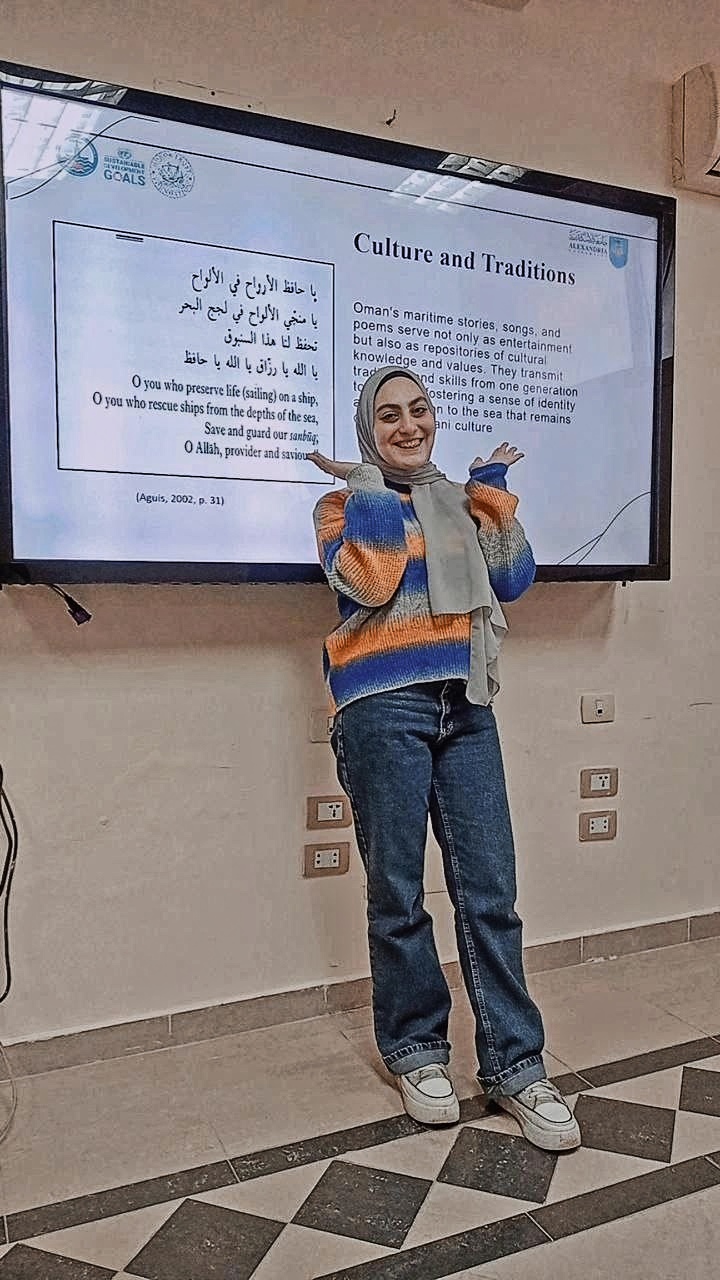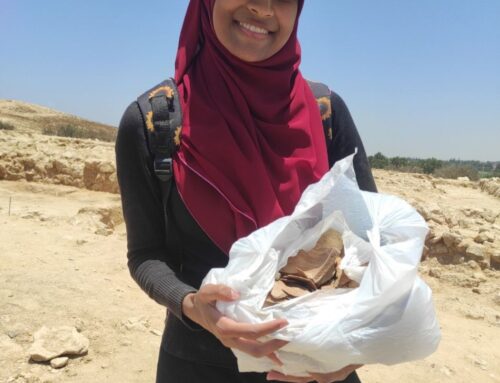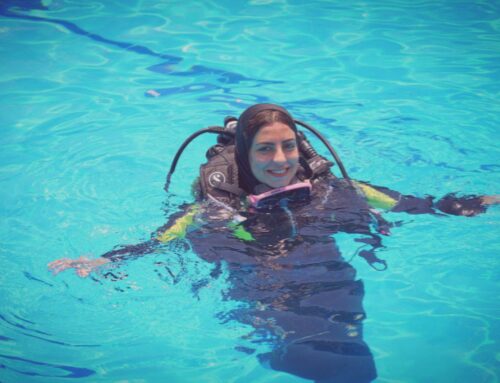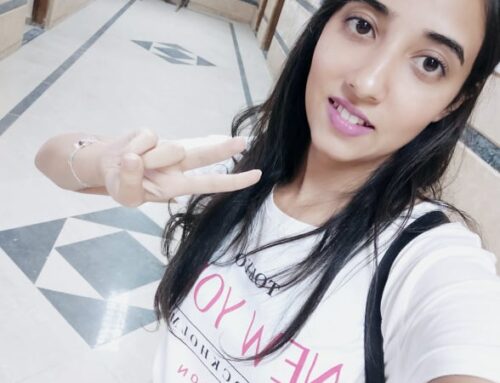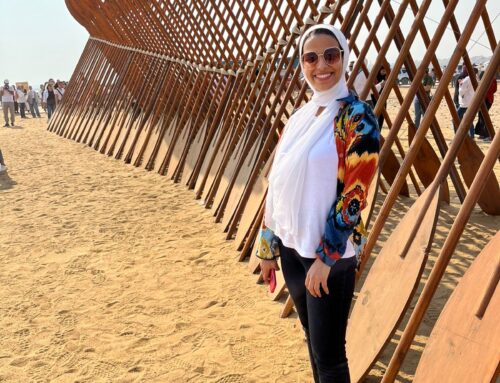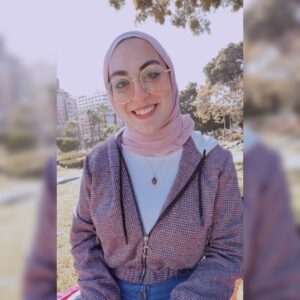 I’m a recent graduate of the University of Alexandria with a Bachelor of Arts in Graeco-Roman Archaeology, a young civil worker, have experience in content writing, and now have a voice with the help of my professors, The Honor Frost Foundation, and every single person at the great CMAUCH.
I’m a recent graduate of the University of Alexandria with a Bachelor of Arts in Graeco-Roman Archaeology, a young civil worker, have experience in content writing, and now have a voice with the help of my professors, The Honor Frost Foundation, and every single person at the great CMAUCH.
My interest in maritime archaeology began as an undergraduate student and grew out of Dr. Emad Khalil’s course on maritime archaeology, inspired by the accounts of the first divers who used whatever they had to explore shipwrecks and underwater locations. This field has the potential to shed light on our understanding of history and offer a unique glimpse into the past.
With that, I hoped to take part in preserving Egypt’s underwater cultural heritage and to dive deep into the complex maritime archaeology theories and explanations of past communities. Clearly, I was particularly interested in the programme’s emphasis on underwater survey and excavation, as well as the conservation of waterlogged finds.
On the other hand, as an advocate for climate action, this scholarship was just perfect because marine archaeological sites are seriously threatened by climate change and because research in this area can contribute to the creation of a more sustainable future. Maritime archaeologists can help limit climate change’s impact by studying the past, raising awareness, and developing new technologies. And I would love to be one of these archaeologists.
It is with great pleasure that I submit my annual progress report. I extend my sincere gratitude to the Frost Foundation and the CMAUCH staff for their invaluable support. The following report will provide a detailed overview of my academic progress, professional development, and applied learning over the past year.
Academic Progress:
After finishing my diploma, I must say this academic year has been a period of significant progress in both my academic and personal development. I have made substantial strides in my on-growing interest in underwater cultural heritage through knowledge accusations, critical reading, and literature reviews, all of which were steep learning processes.
Actively engaging in attending seminars, research proposals, lectures, workshops, conferences, and then enhancing my own knowledge and skills related to the vast body of maritime archaeology. This happened throughout the whole academic year. One example is that before the second semester, I had no prior knowledge of heritage management. This course has significantly broadened my understanding of the field.
Professional Development:
Alongside the expected submission of assignments, I had the privilege of taking part in a book project under the supervision of professor Emad Khalil and helping by volunteering in the Bahar project; giving time and effort always paid off just as much. I also managed to attend several seminars, workshops, and conferences, including:
- THE 18TH CENTURY SHIPWRECK UMLUJJ, KSA. [Chiara Zazzaro]
- Nutrition of Sailors in the Ancient Time, and its Relation to Health and Disease on Board of Ships An Osteoarchaeological Study. [Marina Guirguis]
- Capacity building for sustainable development of maritime cultural heritage: education, dissemination, and management—focus on the MENA region. [Lucy Blue]
- Echo from the depths of historic shipwrecks in the Red Sea. [Emad Khalil, Holger Buss]
- Maritime Cultural Heritage: Egypt’s Blue Memory. [Emad Khalil]
These events provided valuable opportunities to learn, network, and stay updated.
I had a total of 6 courses with a variety of topics underneath them. My favourite was heritage management in the coastal zone. I had given a sufficient time for each of the courses, learning how to prioritise, leading me into acing in every one of them being the top of my class at the end of the academic year with an A-.
Learning about one topic and working on it by doing research with my own perspective and then presenting it in front of my colleagues and professors was a huge turning point in the academic sense, as before that and during my 4-year college, that didn’t exist.
I managed to make a research proposal that agreed with my goal from the start, speaking of the coastal communities, and I also made a presentation about the underwater cultural heritage of Oman, which was my goal to shed light on the intangible heritage.
By the end of the year, I was writing thousands of words comfortably, snatching information from various media effectively, and putting together a presentable presentation.
